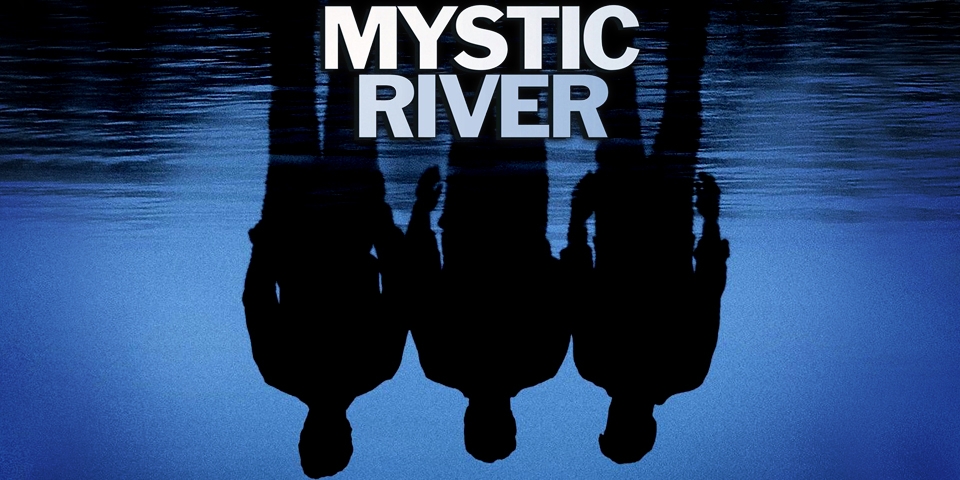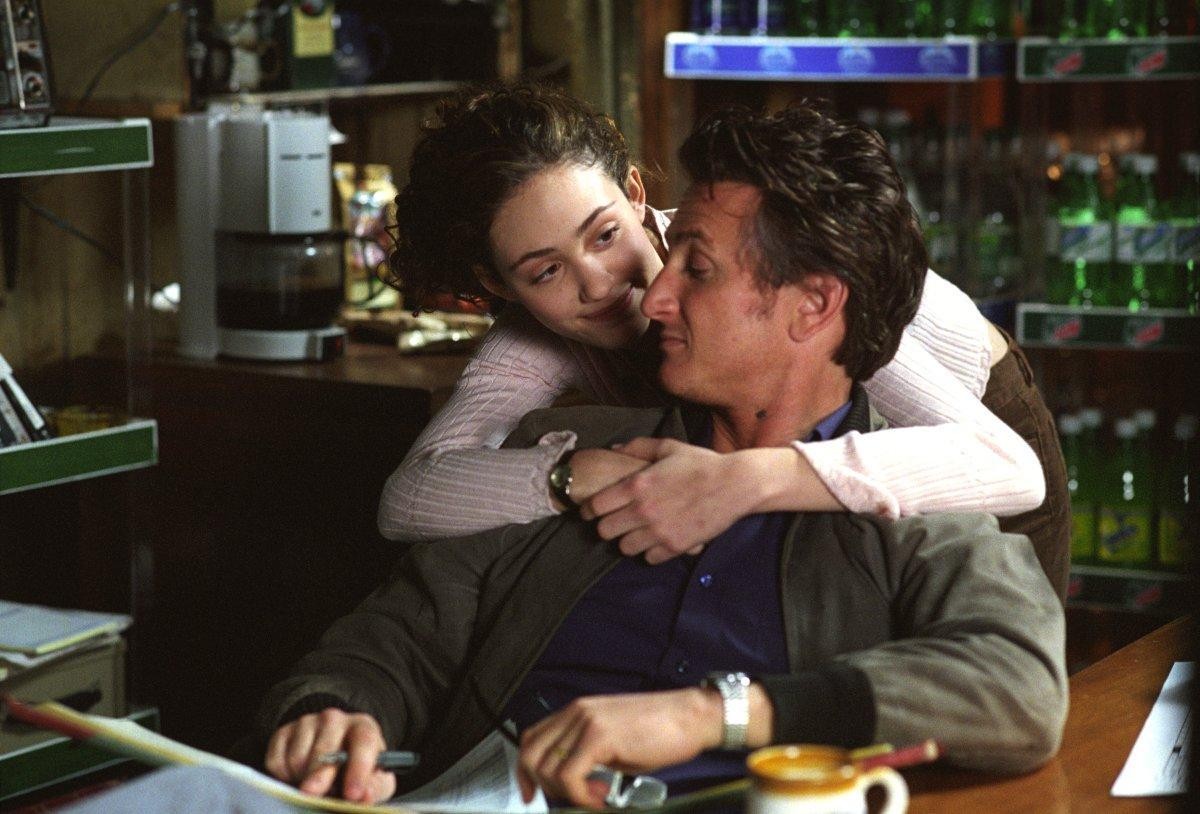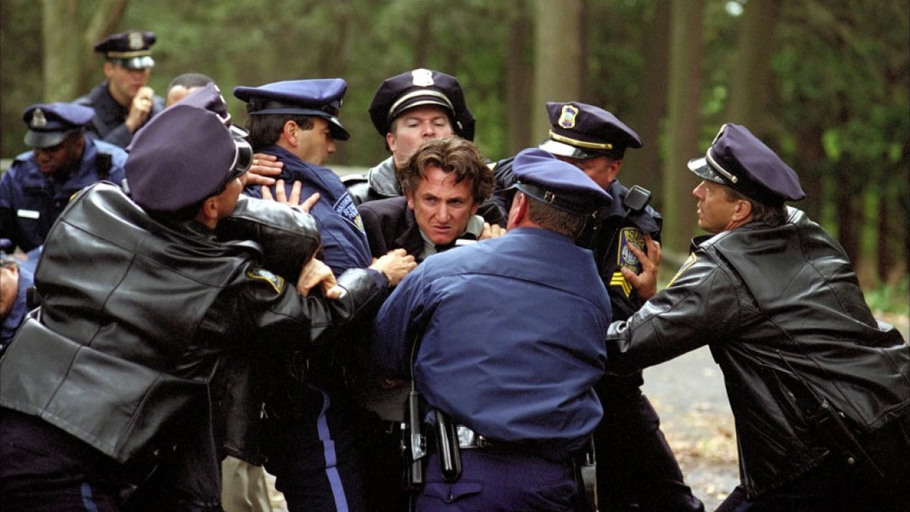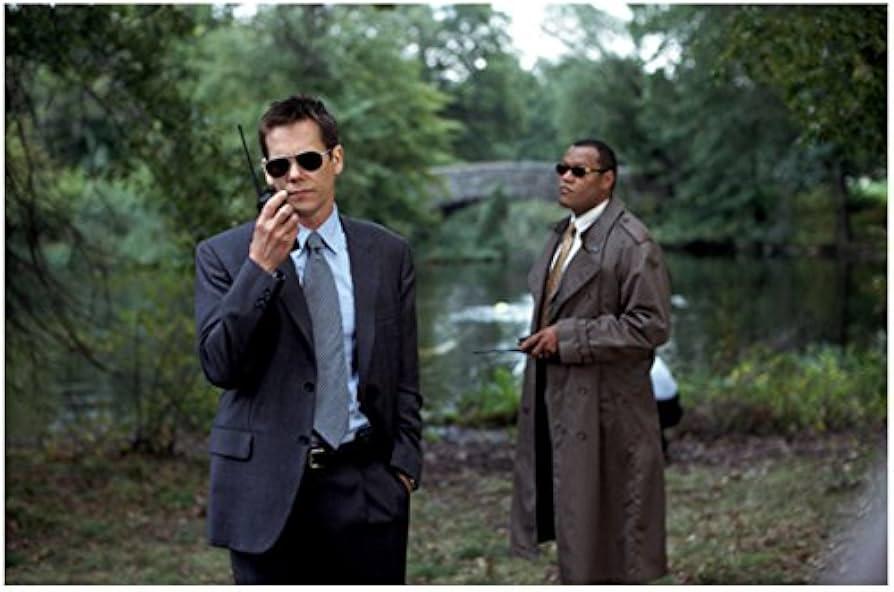
“Mystic River,” directed by Clint Eastwood, is a haunting drama that intricately weaves themes of trauma, friendship, and the search for redemption. Released in 2003, the film features a stellar cast, including Sean Penn, Tim Robbins, Kevin Bacon, Laurence Fishburne, Marcia Gay Harden, and Laura Linney. Adapted from Dennis Lehane’s novel by Brian Helgeland, “Mystic River” masterfully explores the lasting impacts of childhood trauma and the complexities of human relationships.
Set against the backdrop of a working-class neighborhood in Boston, the story revolves around three childhood friends: Jimmy Markum (Sean Penn), Dave Boyle (Tim Robbins), and Sean Devine (Kevin Bacon). The film opens with a flashback to their youth, where they share innocent moments of friendship, but it is quickly contrasted with a dark incident that forever alters their lives. Dave is abducted by a pedophile, an experience that leaves deep psychological scars, influencing his future relationships and identity.
Years later, the narrative shifts to their adult lives. Jimmy is a hardened ex-convict who has turned to a life of crime, now trying to provide for his family and protect his community. Sean is a detective with the Boston Police Department, struggling with his own issues while trying to uphold justice. Dave, meanwhile, is emotionally fragile, still haunted by his traumatic past. The characters’ lives intersect once again when Jimmy’s daughter is brutally murdered, and suspicion quickly falls on Dave, leading to a spiraling investigation that unearths buried secrets and unresolved tensions.
Clint Eastwood’s direction brings a raw intensity to the film, capturing the bleakness of the characters’ lives and the weight of their emotional burdens. The cinematography, marked by shadowy tones and moody settings, enhances the film’s sense of despair and urgency. Each frame is meticulously crafted, reflecting the psychological states of the characters and immersing the audience in their tumultuous world.
The performances in “Mystic River” are nothing short of exceptional. Sean Penn delivers a powerful portrayal of Jimmy Markum, channeling a mix of grief, rage, and desperation as he grapples with the loss of his daughter. His transformation from a caring father to a man consumed by vengeance is both heartbreaking and riveting. Tim Robbins’s portrayal of Dave is equally compelling; he embodies the struggle of a man burdened by guilt and trauma, oscillating between vulnerability and a desperate need to prove his innocence. The emotional depth of both performances earned them Academy Award nominations, showcasing the film’s powerful exploration of the human psyche.
Kevin Bacon’s portrayal of Sean Devine adds another layer to the narrative. As a detective caught between his childhood friendships and his professional duties, Bacon navigates the moral complexities of the investigation, highlighting the strain that the case places on his relationships. The dynamic among the three men is palpable, filled with tension, unspoken resentment, and a longing for understanding.

The film also features strong supporting performances, particularly from Marcia Gay Harden as Celeste, Jimmy’s wife, who faces her own struggles as she copes with the unfolding tragedy. Laura Linney plays Jimmy’s sister, adding depth to the family dynamics and the impact of the crime on their lives. Each character is intricately woven into the narrative, contributing to the film’s exploration of community, loyalty, and the consequences of violence.

The score, composed by Eastwood himself, enhances the film’s emotional weight, weaving a haunting melody that echoes the characters’ pain and longing. The music serves as a subtle but powerful force throughout the film, reinforcing the tension and underscoring the moments of heartbreak and introspection.
At its core, “Mystic River” is a meditation on the nature of justice, the impacts of trauma, and the bonds of friendship. The film raises profound questions about morality and the choices we make in the face of tragedy. As the investigation unfolds, the characters are forced to confront their pasts, leading to devastating revelations that test their loyalty and challenge their understanding of justice.

In conclusion, “Mystic River” is a masterful film that combines a gripping narrative with powerful performances and expert direction. Clint Eastwood’s adaptation of Dennis Lehane’s novel transcends the typical crime drama, delving into the complexities of the human experience and the scars left by trauma. Its exploration of friendship, loss, and the quest for redemption resonates deeply, leaving viewers with a profound sense of reflection on the choices we make and the paths we choose in life. “Mystic River” stands as a poignant reminder of the intricate tapestry of human emotions and the indelible marks left by our pasts.